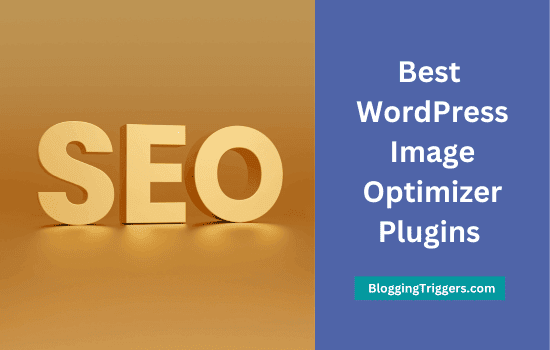
Having a business website is extremely important in today’s world. If you think that it’s complicated to learn how to create a website from scratch – well it’s far easier than it was before.
In this article, we will go over the steps you need to build a website. Later on, we will give you several reasons why you need a website, and last but not least, we will give you a few ideas on how to promote your website.
Table of Contents
Complete Guide on a Business Website
Let us get started,
Steps to Build a Website

1. Choosing a domain name: Your domain name is the address of your website that users will type into the address bar of their web browser to access your site. In addition to being brief and easy to recall, it needs to be reflective of your brand or company.
In most cases, the domain name is the same as the business name. The domain name is the first cost that you will have to pay in order to build your website. Depending on what kind of domain you want, you can pay anywhere between a couple of dollars to a few hundred dollars.
2. Decide on a web hosting company: A web hosting company is a company that provides users with the resources and services necessary to construct a website and make it available via the internet. When choosing a web hosting provider, some factors you should take into consideration include the amount of storage space and bandwidth that are provided, the type of server that is used, and the quality of the customer support that is offered.
There is a wide selection of web hosting companies available. If you go to hostadvice you will find the best-rated ones. Keep in mind that you should do some research and comparison to find the one that meets your needs in the most efficient and effective manner.
3. Set up a content management system: A CMS is a platform that makes the process of creating, editing, and managing content on your website much simpler. This is a crucial step because it will give your website structure and make it simple for you to add and edit content. Drupal, Joomla, and WordPress are all options that have a lot of popularity.
4. Design your website: Your website’s design is crucial because it establishes the mood and aesthetic of your brand. The layout should be aesthetically pleasing, easy to use, and feature a distinct informational hierarchy. In addition to that, it ought to have a standardized color scheme and font. The use of a website builder will assist you in the process of developing a website that is visually appealing as well as easy to navigate by its visitors.
5. Generate content for your website: After your website has been established and designed, the next step is to add content to it. Text, pictures, videos, and other types of media that convey information about your company, its goods, or its services can fall under this category. Through frequent updates, you can ensure that the information presented to your visitors is both current and engaging.
6. Testing: Put your website through several tests before going live with it. This is essential to ensure that the website is functioning correctly and that all the links and content are active. Extensive testing can be performed on a variety of web browsers and electronic devices in order to verify that everything is functioning as it should. When you’re happy with the way your website looks and works, you can make it public.
In a nutshell, developing a website calls for extensive planning, the right kind of tools, and a certain level of technical expertise. However, with a bit of effort, anyone can create a website that has a professional appearance and successfully advertises their brand or business to potential customers.
The steps that have been outlined above provide an extensive summary of the process. However, there may be additional aspects that need to be taken into consideration, depending on the specific requirements and goals of your website.
Reasons to Create a Business Website

A website is an essential tool for any kind of business, regardless of its size or field of operation. The following are some of the many reasons why you should have a website for your company:
1. Credibility: In this day and age, every legitimate company needs to have their own website in order to be taken seriously as a commercial enterprise. Credibility and professionalism are the number one benefit of having a website.
If your company does not have a website, potential customers may have the impression that your business is unprofessional or out of date. Your company will appear more credible and trustworthy to prospective clients if you have a website.
2. Connection: If you have a website, you will be able to connect with a greater number of people. Having a website for your business opens the door to the possibility of connecting with customers all over the world.
Anyone who has access to the internet can gain additional knowledge about your company, its products, or its services simply by visiting your website. If you do this, you will likely be able to increase the number of people who purchase from you and your overall reach.
3. Platform on which to present your goods or services: A website provides a platform on which to present your goods or services that is both well-organized and run in a professional manner. On your website, you are able to provide comprehensive information about your products or services in addition to providing high-quality photos and videos. This can make it simpler for prospective customers to understand what it is that you have to offer and decide whether to make a purchase from you.
4. Customer loyalty: A website can make it easy for your business to communicate with its visitors by including functions such as contact forms, live chat, and email newsletters. These functions contribute to the satisfaction of the customer. The loyalty of one’s customers, as well as their trust in the brand, can be increased via communication.
5. Outreach: Reaching more people is possible with the help of search engine optimization (SEO), which improves a website’s visibility and attracts a greater number of visitors.
A website that is appealing to users and easy to navigate is beneficial to search engine optimization (SEO) because it makes it easier for search engines to find and index your website. This may increase the amount of organic traffic that is directed to your website and help you achieve a higher ranking in the search results. All this will contribute to more visitors, which may turn into new consumers.
Ways to promote a business website

1. Marketing through social media: Using social media platforms like Facebook, Twitter, and LinkedIn to help promote and drive traffic to your website is one way to utilize social media marketing. This can be accomplished by generating and sharing content that is relevant to the audience, interacting with users, and running paid advertisements on social media.
2. Email marketing: Creating an email list of subscribers and sending them newsletters or promotional emails can be an efficient way to promote your website and drive traffic to it.
3. Content marketing: It is the process of creating and sharing content (such as blog posts, articles, infographics, etc.) that is valuable, informational or educational as well as consistent with the goals of attracting a clearly defined audience. Only quality content will drive large audience to your website.
4. Paid advertising: Running paid ads on search engines, social media platforms, or other websites can help drive traffic to your website and increase brand awareness. This type of advertising can also help generate revenue.
5. Influencer marketing: This is when you form a partnership with individuals who have a large following on social media or other platforms. Influencers can help promote your website and the products or services you offer to their followers.
6. Partnerships: Building relationships with other businesses or professionals in your industry can lead to partnerships that are mutually beneficial and can help promote your website. These partnerships can be formed through networking.
7. Online marketing: Traditional offline marketing strategies such as print advertisements, radio advertisements, and direct mail should not be overlooked when engaging in offline marketing. These have the potential to be effective in driving traffic to your website, particularly if they contain a compelling call to action and an obvious way for the customer to find out more information (such as a QR code or URL).
QR code generators are automated tools that allow users to create two-dimensional barcodes or QR codes. This type of barcode can be scanned by smartphones or digital cameras and contains data that can be linked to various online sources. A QR code generator typically allows users to customize their codes with specific information, such as a website URL, phone number, email address, text message, or social media accounts.
Additionally, they often offer tracking capabilities helping brands trail who has scanned their code and when. This allows for powerful analytics to understand user behavior better and act accordingly.
When it comes to successfully promoting a company website, having an all-encompassing marketing strategy that draws from a variety of marketing approaches and is crafted specifically for the demographic you wish to reach is essential.
Conclusion
In conclusion, a website is an essential tool for any company that wants to increase its search engine rankings, build credibility, connect with a larger market, promote its goods and services, and increase the number of people who see its advertisements. Having a website allows for improved communication with your existing clientele as well as the dissemination of valuable information to prospective clients.



